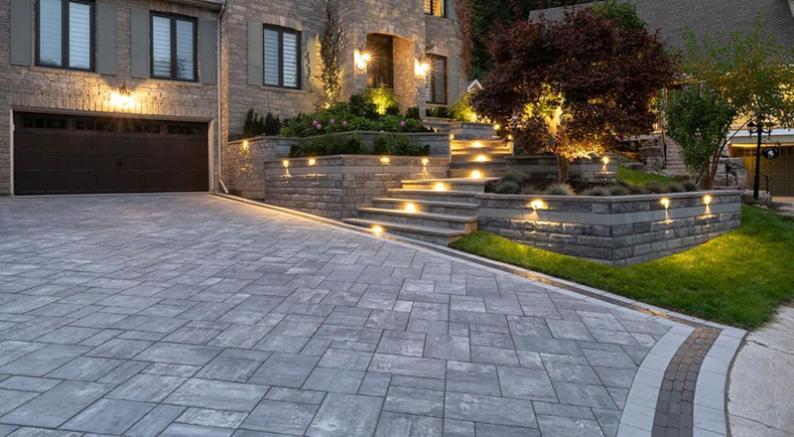
Concrete has cemented itself as the go-to option for many projects. It’s built strong and can withstand extreme elements while offering impressive versatility. However, not every concrete paving solution is the same; there are still various factors one needs to consider before proceeding with a project. Two popular solutions are interlocking pavers and traditional poured concrete, particularly stamped concrete. We’ll examine each method's benefits and downsides while exploring why interlocking pavers might be the right approach for your next outdoor project.
Wide Range of Design
Interlocking pavers come in a wide range of designs, from timeless natural stone to sleek polished concrete. This variety makes choosing your project's best colours, textures, and patterns easier. In contrast, stamped concrete is limited by on-site customization options and control joint placement.
Easy Installation and Maintenance
Installing interlocking pavers is simple and involves laying them on a well-prepared base. This ensures stability and durability without needing post-installation sealing. On the other hand, stamped concrete needs regular sealing to maintain its appearance and protect against weathering.
Durability and Longevity
Interlocking pavers are built to last and are highly durable; holding a compressive strength nearly three times that of poured concrete. This strength makes them ideal for areas like driveways and pathways frequently subjected to heavy loads. Unlike stamped concrete, which is susceptible to cracking under freeze-thaw conditions and on expansive soils, interlocking pavers are designed to flex with the ground, minimizing the risk of cracking and ensuring long-term structural integrity.
The Greener Paver
One of the most unique advantages of interlocking pavers is their ability to create porous surfaces that allow water to infiltrate the ground, reducing runoff and helping to mitigate flooding - a benefit that traditional poured concrete, including stamped varieties, cannot offer. This eco-friendly feature promotes sustainable landscaping practices and contributes to a healthier environment.
Repairs or Replacements
In the event of damage, interlocking pavers offer a straightforward repair process. Individual pavers can be easily replaced without disturbing the overall design, ensuring seamless repairs and colour consistency. This stands in contrast to stamped concrete. You can expect stamped concrete repairs to result in noticeable colour discrepancies between old and new sections, leading to increased maintenance difficulty and reduced aesthetic value.
Considering the Cost
Maintenance costs must also be considered before you begin any paving project. Poured concrete demands sealing costs every two to three years to make it look presentable. Interlock can certainly be sealed, but it is not at all a necessity, and it will maintain its original beauty for years on end in any case.
Contact Us Today
If you’re considering installing interlocking pavers or want to learn more about how they can enhance your paving project, contact us for expert advice and installation services. With a range of modern designs and features, we’ll help you find the perfect interlocking pavers to elevate your outdoor spaces and attract potential buyers. Reach out today to get started on creating something that’ll stand the test of time.
